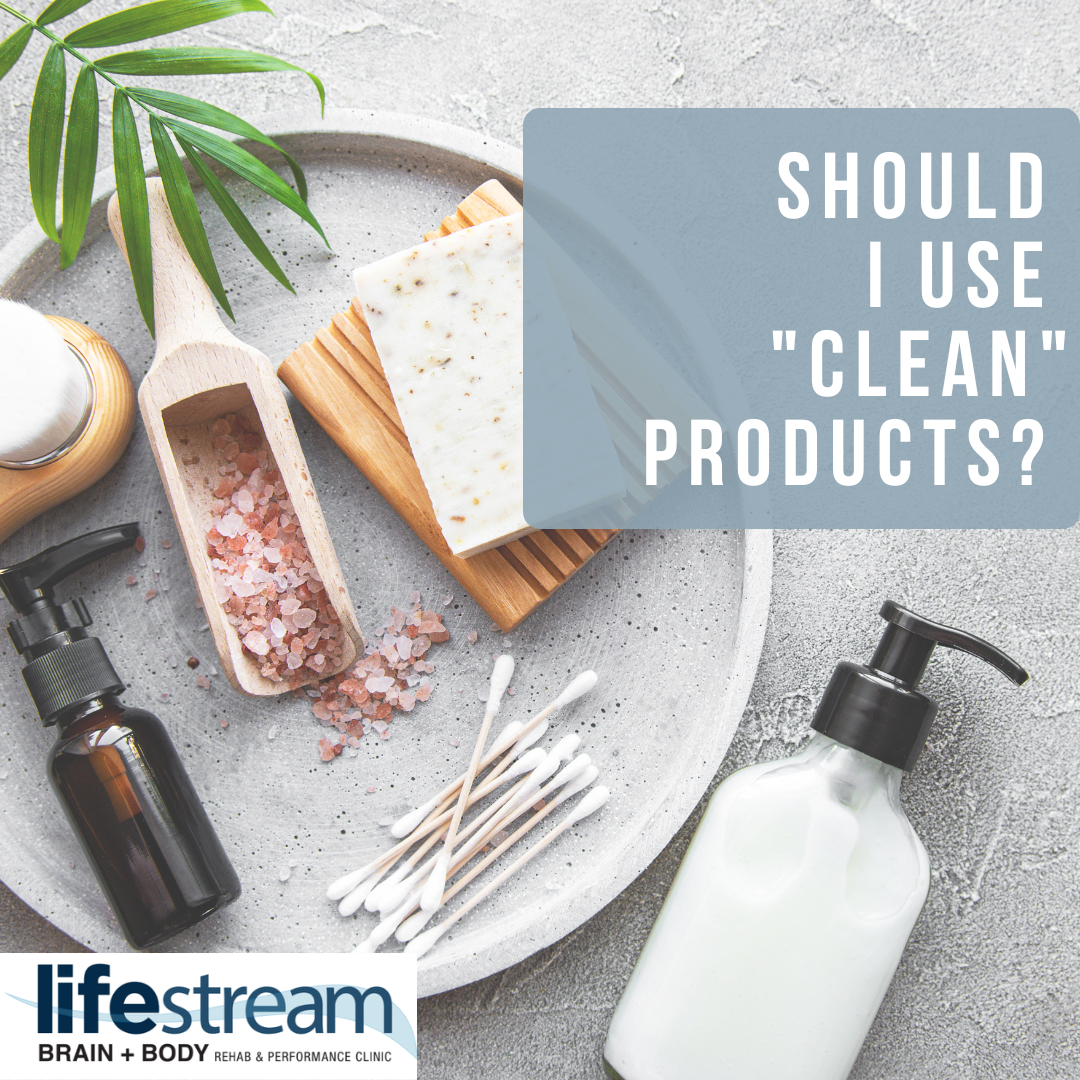
Why should I use “clean” products? What are “clean products” and how can I recognize them?
“Clean” has become a buzz word. This can often be confused for a product that is “green” or friendly to the environment. However, when I am referencing a “clean” product, I am talking about a product that is non-toxic and free from substances that can cause harm to the human body. Products that are “clean” often have claims that say they are “free from parabens, sulfates, nitrites, phthalates, etc.” Other words often written on these products are “all natural” or “non-toxic”.
What is so harmful about these ingredients and why should I avoid them?
A lot of these chemicals are also known as endocrine disruptors because they can disrupt normal endocrine (or hormonal) processes in the body and are linked to various problems in the reproductive, immune, neurologic body systems. These compounds are able to bind to various receptors in the body and compete with our natural hormones in the body and disrupt the purpose for which the hormones are supposed to accomplish. These chemicals can disrupt various endocrine systems such as the thyroid, adrenals, pancreas, reproductive organs, etc. and are also linked with obesity and type 2 diabetes. Additionally, many of these compounds are fat-soluble and can accumulate in the fatty tissues in the body.
It is difficult to examine the true effects of these chemicals over the lifetime. Individuals today are being exposed to far more chemicals that our grandparents were though. A lot of these chemicals can affect important hormonal processes that are essential for growth and development. The FDA has named certain chemicals “safe” because of specific scientific studies; however, these studies only deem these chemicals safe in certain concentrations. There does not seem to be much research out there on how these chemicals in combination affect the human body.
We are not only subjecting our bodies to one chemical at one time. We are exposed to tons of chemicals every single day. This is where toxic overload can happen. This is when our bodies start having trouble detoxing chemicals or toxins in our body because of how many there are, and so they begin to accumulate and can cause issues. The body then has to work harder to do what it’s supposed to do. This is especially impactful for children as they may ingest the same amount of contaminants as an adult but they have a much smaller body so the concentration is higher compared to an adult. Additionally, their bodies are growing and developing and so these chemicals can interrupt those processes. While there is not a lot of research out there on this specific topic, we are starting to see the negative impacts of these effects.
Here are some ingredients in products that research is showing can be problematic:
– BPA: This chemical is often used in plastic products, reusable food and beverage containers, reusable water bottles, etc. BPA can affect brain development and reproductive health, and is associated with several cancers.
– Phthalates: Phthalates are often used in supplements, medications, food and beverage packaging, cosmetics, and personal care products. Phthalates can affect reproductive and thyroid systems and are associated with increasing insulin sensitivity and higher cholesterol.
– Parabens: Parabens are often found in personal care products, foods, and medications. They have been associated with infertility and other reproductive issues.
– Dioxins: Dioxins are not considered to be safe at any level. Dioxins are most prominently seen where plastic products are recycled. Child mouthing toys made from recycled plastic can be as source of this toxin.
Here are some simple replacements that you can make to help remove extra chemicals from your life and the lives of your loved ones:
– Replace your plastic products with glass: This can be a slow change, but slowly replacing your plastic products- especially ones that come in contact with food or drink- can eliminate exposure to several chemicals.
– Make your own cleaning products: Store your homemade cleaning products in glass containers using ingredients that you know and trust. There are a ton of good recipes online!
– Buy organic produce: Organic produce can be expensive so picking and choosing the ones on the “Dirty Dozen” list will be most beneficial. Insecticides have been linked with neurotoxicity and depressive disorders.
– Switch out your personal care products: One by one, switch out your personal health products with products that don’t have these ingredients above. Doing this one by one and waiting for about a week before introducing a new product ensures that you won’t have any adverse reactions. *
*Another important consideration is the fact that these cleaner products often have ingredients that are more allergenic and that have higher rates of dermatitis, a type of skin reaction.
Feel free to reach out to one of our providers for guidance or with questions!
Sources:
https://www.niehs.nih.gov/health/topics/agents/endocrine/index.cfm#:~:text=Endocrine%20disruptors%20are%20found%20in,break%2Ddown%20in%20the%20environment.
https://www.ewg.org/what-are-parabens#:~:text=The%20concern%20with%20these%20chemicals,can%20also%20cause%20skin%20irritation.
https://www.ncbi.nlm.nih.gov/pmc/articles/PMC9145289/
https://www.ncbi.nlm.nih.gov/pmc/articles/PMC10049097/
https://www.endocrine.org/topics/edc/what-edcs-are/common-edcs
https://www.ncbi.nlm.nih.gov/pmc/articles/PMC4712864/
https://pubmed.ncbi.nlm.nih.gov/36774123/
https://pubmed.ncbi.nlm.nih.gov/31792807/
https://www.bcpp.org/resource/parabens/
https://www.ncbi.nlm.nih.gov/pmc/articles/PMC8834979/
https://www.atsdr.cdc.gov/csem/nitrate-nitrite/health_effects.html
https://jamanetwork.com/journals/jama/article-abstract/2797889
